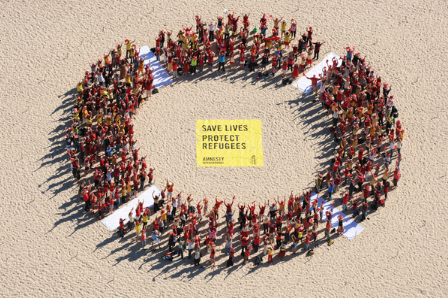This article was originally published in the Toronto Star.
By Justin Mohammed
Refugee claimants who cross the Canada-U.S. border irregularly do not reach that decision lightly. Upon doing so, they are arrested and temporarily detained until police establish their identity and ensure they aren’t a security threat. Possessions are restricted to those that they can carry. The route can be dangerous; frostbite has claimed fingers, and hypothermia has even claimed a life. After the refugee protection claim is launched, they remain in limbo for months or years without a guarantee they will be allowed to stay.
This is what refugee claimants coming through the U.S. weigh when they decide to seek Canada’s protection.
In spite of this, the federal government has decided to tighten its borders, further targeting refugee claimants who seek Canada’s protection by travelling through the U.S.
First, Canada will deny access to the independent Immigration and Refugee Board (IRB) — the cornerstone of our refugee status determination system — to people who have made prior claims for refugee protection in the U.S. (along with Australia, New Zealand and the United Kingdom).
Second, Canada is seeking to amend the Safe Third Country Agreement so refugee claimants who cross the border between official ports of entry will be forced back to the U.S.
To some, the idea of fleeing human rights violations in the U.S. is absurd. But that is the harsh reality for refugees and migrants in the U.S. Consider the discriminatory travel ban on Muslim-majority countries. Child and family separation. Harsh detention practices. Removal of gender-based violence as a ground for protection. Axing presumptive release for pregnant women in immigration detention.
Recently, the Trump Administration released yet another cruel deterrence policy: denying bond hearings until refugee claims are finalized, which can take years. In patent evidence of its absurdity, the new rule was suspended for 90 days because detention facilities are already so stretched that they will not be able to manage the influx.
While Canada cannot change these policies, it certainly should demonstrate opposition by setting a better example. The alternative is a race to the bottom, wherein each country would seek to adopt the harshest policies as a deterrent to those seeking protection.
If we reject such an approach, we might nonetheless ask: can we afford it, and is it fair?
In the past two years, about 40,000 people have crossed the border irregularly. That is about 55 people per day. That influx does lead to an increased demand on resources, and the way we accommodate those needs is the subject of legitimate debate.
At the same time, it’s important to view the number in context. There are almost 1 million Syrian refugees in Lebanon, almost a quarter of the country’s total population. Bangladesh is hosting about 1 million Rohingya refugees, 700,000 of whom have fled Myanmar since August 2017. Uganda is home to more than 1 million South Sudanese. Those countries are hosting exponentially greater numbers with far fewer resources. By comparison, Canada is largely exempt from the so-called global refugee crisis.
It’s trite to suggest Canadians value fairness. Fairness entails treating like cases alike, and yet politicians and pundits continue comparing immigrants and refugees, saying the latter need to “get in the right line” or disparaging them as “queue jumpers.”
In fact, there are different “lines” — one for those who wish to immigrate to Canada, and another for those seeking protection as refugees. The IRB decides whether refugee claimants have met the legal definition, and those who do not are subject to removal.
Canada’s proposed changes will establish an unfair, two-tier system. Some refugee claimants will have access to the independent IRB and an oral hearing, while others will be relegated to a process in which a government official decides their fate, with no legal right to an oral hearing. This makes the system less, not more, fair.
Tightening our borders is a knee-jerk reaction to a situation, largely caused by our neighbours to the south, at a time when the number of irregular crossings is in decline. Like all things that are not fully scrutinized and debated, it will do little to help and will cost the most to those asking Canada for nothing more than the right to be heard.
Justin Mohammed is a human rights law and policy campaigner at Amnesty International Canada.






















